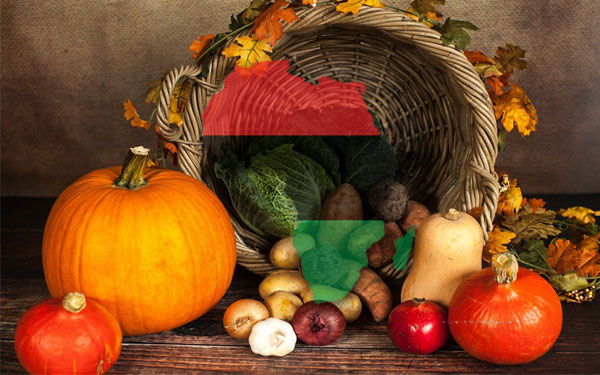Chinese Harvest Festival
This is How Thanksgiving is Celebrated in Africa
Thanksgiving is a time-honored tradition in many parts of the world, but its expression in Africa is uniquely diverse and rich. While it may not be as widely celebrated as in North America, Africa has its own set of gratitude festivals and traditions that reflect the continent's cultural and regional diversity.
Harvest Festivals in Africa: Africa's diverse climate and agricultural practices have given rise to a variety of harvest festivals celebrated throughout the continent. These festivals mark the end of the harvest season and are often occasions for giving thanks. Some notable ones include the Yam Festival in Nigeria, the Homowo Festival in Ghana, and the Rwandese Kwita Izina.
Traditional Rituals: Many African cultures have ancient rituals and ceremonies that involve expressing gratitude for a successful harvest. These rituals often involve offerings to ancestral spirits and gods. For example, the Ashanti people in Ghana have an annual yam ritual that involves offering the first yam to their ancestors.
Family and Community Gatherings: Thanksgiving celebrations in Africa emphasize the importance of family and community. It's a time for loved ones to come together, share meals, and express gratitude for one another. In countries like South Africa, families gather for a meal known as "Umhlonyane," where they eat traditional dishes and share stories.
Traditional African Thanksgiving Dishes: African Thanksgiving feasts feature a wide array of dishes, often showcasing regional specialties. Dishes like jollof rice, fufu, injera, and grilled meats can be found on the menu, depending on the region. These meals are often prepared with love and care, and they represent the local flavors and traditions.
Cultural Parades and Festivities: In some African countries, Thanksgiving is marked with colorful parades and cultural festivities. These events showcase traditional clothing, dance, and music, providing a unique window into the diverse cultures of Africa.
Contemporary Celebrations: As African societies evolve, some regions have adopted modern Thanksgiving celebrations, inspired by global influences. These celebrations often include elements like turkey, pumpkin pie, and giving thanks for the blessings of the year.
Gratitude and Community Service: In the spirit of Thanksgiving, many Africans engage in acts of kindness and community service during this time. This can include donating food, clothing, or other essentials to those in need, reinforcing the idea of giving back.
While African Thanksgiving celebrations may differ from those in North America, they all share the common theme of gratitude, unity, and celebration. It's a time for Africans to reflect on their blessings, share their abundance, and celebrate the diverse cultures and traditions that make the continent so unique.
In Africa, the harvest festivals have a lot of religious connotations. Dancing and singing are a special part during the festival. People who take part in dances wear traditional masks and outfits. Each dance sequence unfolds a unique story.

The Festival of Yams is a popular harvest festival. Yams are the most common food and are the first crops to be harvested. This festival is celebrated with days of ceremonies and offerings to God and the ancestors. The offerings are later distributed among the village folk. This is their way of giving thanks to the spirit. The festival is usually held in the month of August, marking the end of rainy season.
The Homowo Festival is the largest cultural festival of Africa. The people of Ghana (West Africa), celebrate it as a traditional harvest festival. The festival starts with a procession in which people from local African and African-American takes part assuming the roles of kings and queens. They also assume themselves as the follower of the royal family of each of Ghana’s ethnic groups.
The people of Africa hold a cultural ceremony called “first fruits” in order to bless the newly harvested crops and purify the people before they eat the foods.

 Friendship Day
Friendship Day Good Morning
Good Morning